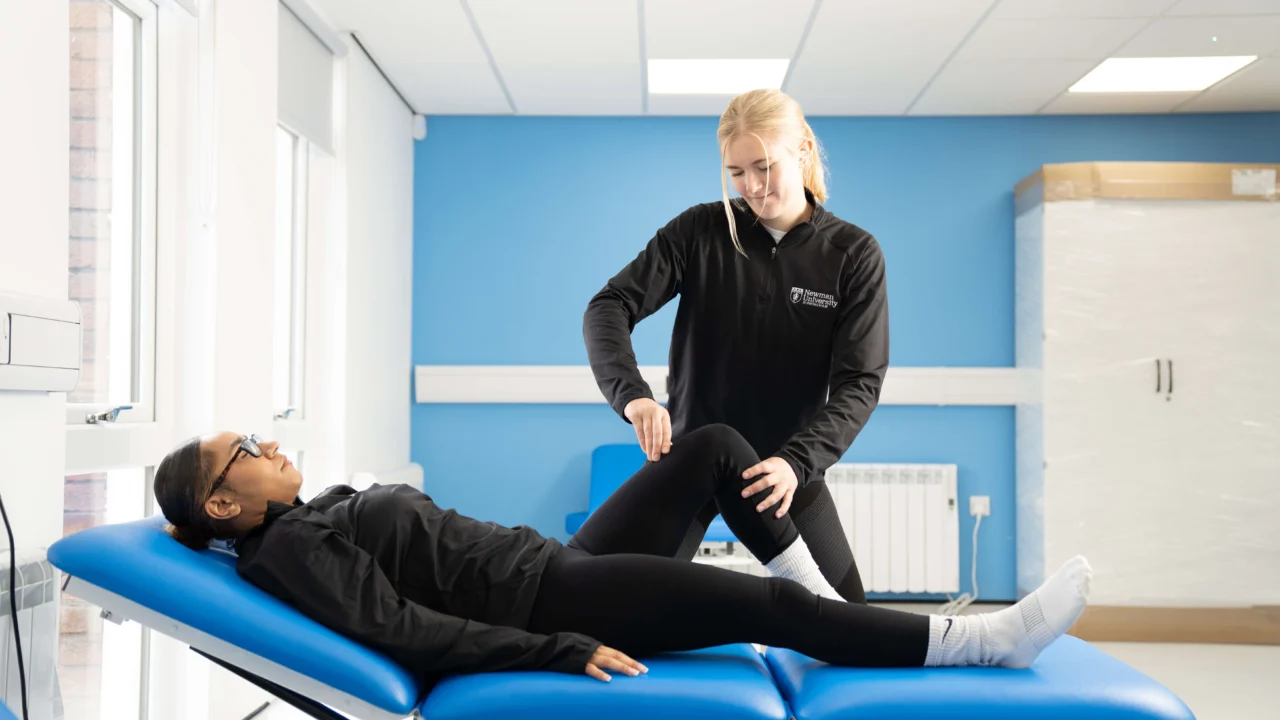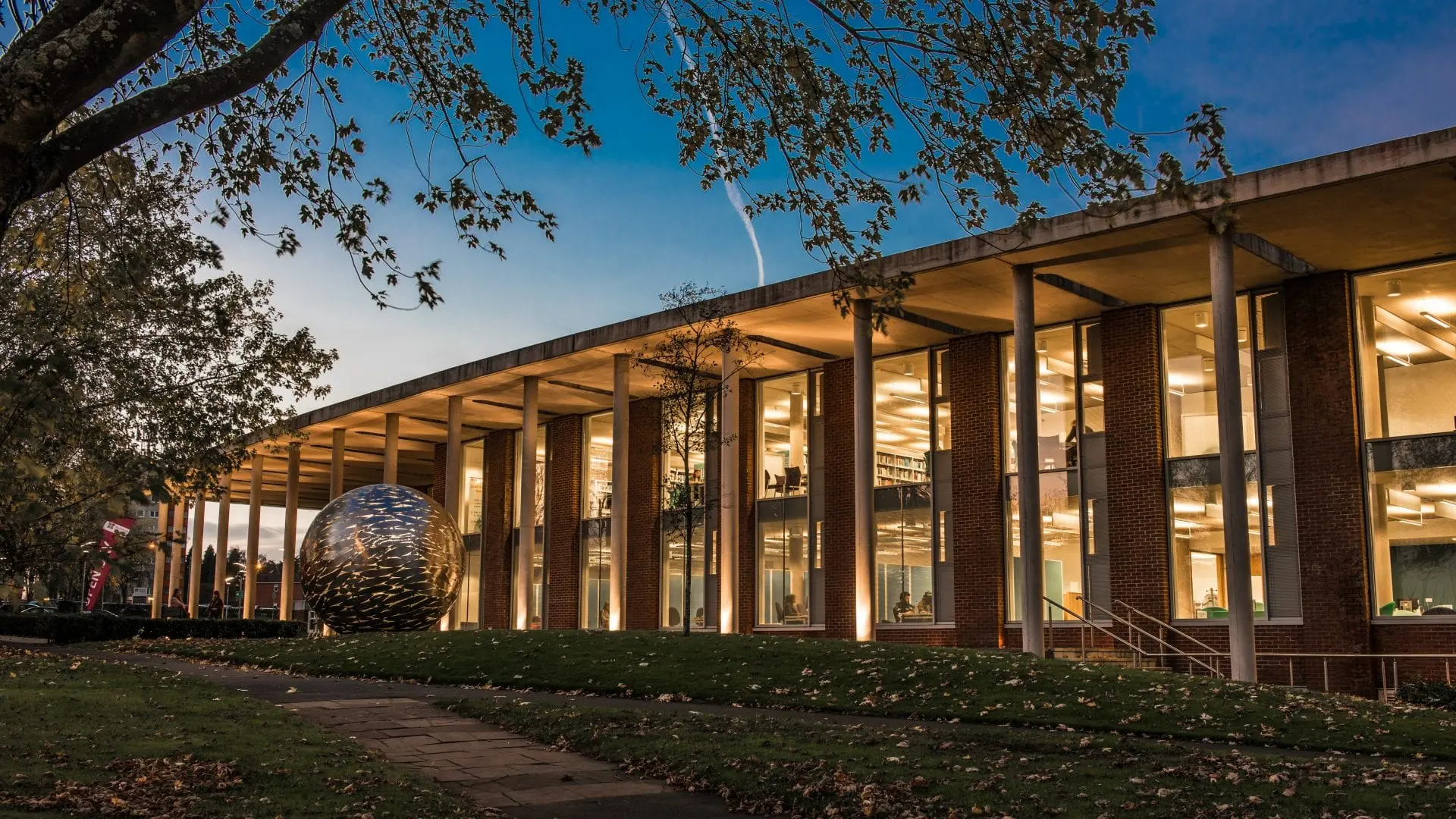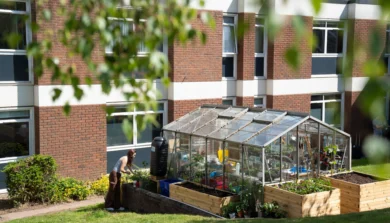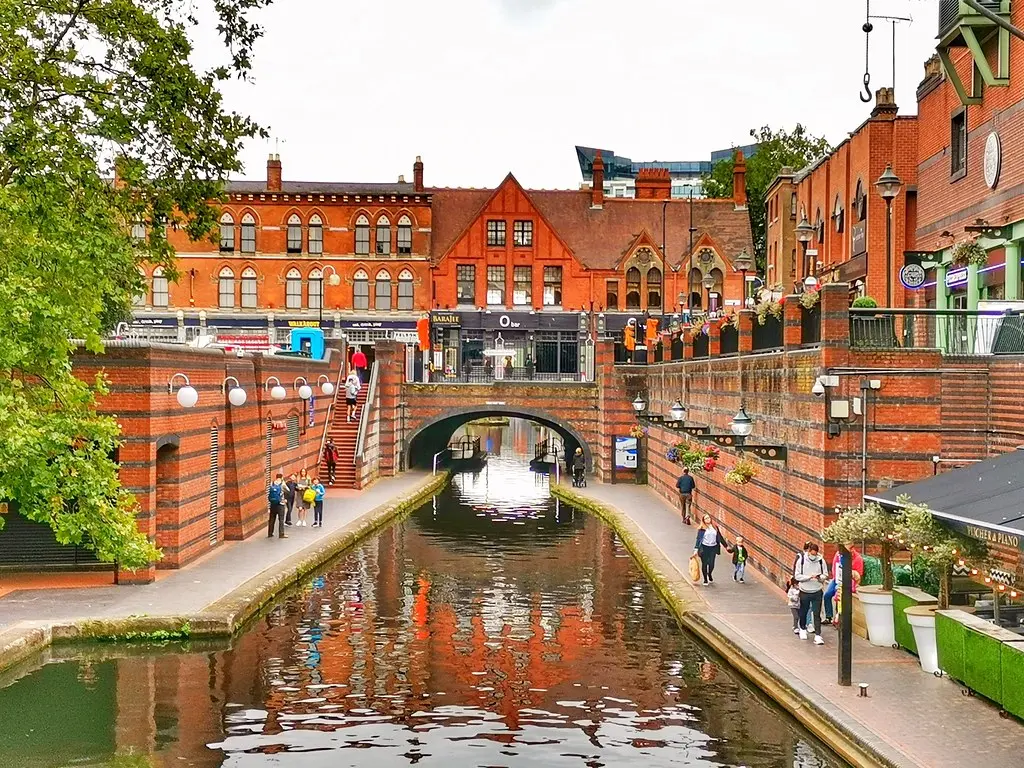BSc Single Honours Physiotherapy
Undergraduate
- Start date
- –
- Study mode
- –
- Course length
- –
- UCAS Code
- –

Interested in a different start date?
The role of a physiotherapist cannot be underestimated
Physiotherapists are an integral to the health care profession. This includes helping patients recover from surgery, sports injuries, accidents and strokes, supporting people with disabilities and long-term illness. The role of a physiotherapist cannot be underestimated.
Other courses from our School of Nursing and Allied Health are:
• Mental Health Nursing
• Adult Nursing
• Occupational Therapy
• Paramedic Science
• Sport & Exercise Therapy
• Health & Social Care
Five Reasons to Study your Physiotherapy Degree at Birmingham Newman
1. The curriculum has been designed to reflect the dynamic role of the physiotherapist
2. You will learn from a highly experienced and passionate teaching team who will provide support you to help you to achieve your ambition.
3. We work with a number of practice partners to give you essential practical experience on a range of clinical placements.
4. You will benefit from our new clinical skills suite including a state-of-the-art immersive lab.
5. Our Physiotherapy programme is validated and accredited by the Health and Care Professions Council (HCPC) and Chartered Society of Physiotherapy (CSP).
The Programme
Physiotherapists play an essential part in improving people’s wellbeing and quality of life.
Our Physiotherapy degree will enable you to develop the core expertise, knowledge and skills demanded of physiotherapy professionals in a number of different clinical settings and environments. The global demand for qualified physiotherapists means that career opportunities are excellent in the UK and further afield.
Our programme is developed in partnership with our skilled academic staff, clinical practice partners and experts by experience. The course at Birmingham Newman University, puts patients at the centre of care delivery. As a physiotherapy student at Birmingham Newman you will develop into a professional who can assess and manage the health needs of people, at some of the most challenging times of their lives.
During your programme of study at Birmingham Newman University, you will learn about the structure and function of the human body in the context of health, disease, disorder and dysfunction, across the lifespan. With our expert guidance, you’ll explore the theories and physiotherapy approaches that can be used to enhance movement and minimise loss of function, focusing on the musculoskeletal, cardiovascular, respiratory and neurological systems. Our experienced and skilled team will help you develop knowledge of the biomedical and behavioural science that underpins physiotherapy practice, and gain skills in physical assessment, treatment and ongoing management. We’ll support you to develop interpersonal skills, such as respecting and prioritising the needs and choices of individual service users, their carers and families, along with their cultural, social and religious backgrounds. We’ll also focus on helping you gain an understanding of the political, social and economic factors that are influencing the current and future delivery of physiotherapy, health and social care services.
As part of the course you will undertake a range of practice placements to help you become a rounded physiotherapist. Your placement learning experiences may be within community, hospital or home environment settings, including non patient facing environments, and at a location anywhere within the West Midlands and potentially into neighbouring counties. While on placement you will be supported, supervised and assessed to develop your knowledge and skills.
We are committed to providing excellent, innovative, learning, teaching and assessment experiences, through lectures, seminars, skills simulation, virtual learning as well as meaningful input from our practice partners and experts by experience.
Whilst on the course you will benefit from some of the best university facilities of their kind, including clinical skills suites and our state-of-the-art immersive suite. Our experienced and enthusiastic teaching team will provide full support to help you achieve your ambitions
Our BSc (Hons) Physiotherapy course has been designed to comply with the requirements of the Health and Care Professions Council (HCPC) and the Chartered Society of Physiotherapy (CSP). On successful completion of the BSc (Hons) Physiotherapy you will be eligible to apply for entry onto the HCPC register as a Physiotherapist and apply for membership of the CSP.
This highly respected course represents your first step into a profession it is a privilege to join.
Consent to participate in practical sessions
The development of practical and clinical skills is integral to your development as a physiotherapist. Participation in interactive practical sessions is therefore essential to your education. During these teaching sessions, you may be asked to act as a ‘model’ for others . Acting as a model may, by necessity, involve the removal of clothing that enables adequate observation and/or examination of movements or body parts. Therefore, before commencing practical classes, all students are given detailed information regarding this issue and are required to sign the relevant section of a consent form. The issue of consent will be explained in more detail during the induction week and revisited throughout the programme.
If you feel that there is an issue which may have an impact on your ability or willingness to act as a model, please contact the programme leader to discuss this. We will make every effort to put mechanisms in place to address your concerns. We want everyone to feel valued and included whilst ensuring that everyone gains the practical and clinical skills needed to successfully complete the programme of study.
• You will benefit from our new state of the art clinical simulation and immersive suites.
• We offer smaller class sizes and excellent academic and pastoral support for our students
• You will have the opportunity to study on an inter professional basis alongside other nursing and allied health students.
• Birmingham is one of the UK’s most diverse cities outside of London, which provides you with a wide variety of experience that will be valuable to take forward into your future career.

Got a question you’d like to ask?
Entry requirements
We welcome students from all backgrounds and accept a wide range of qualifications. If yours aren’t listed, don’t worry – our Admissions Team can help you explore your options. See full entry requirements.
• A-Level: Grade profile of BBB or 120 UCAS Tariff Points. To include a grade B in biological science (Biology or Physical Education).
• BTEC: Grade profile of DDM. This can be achieved from either an Extended National Diploma or a combination of smaller BTEC qualifications.
• T-levels: A T-level with an overall Merit grade.
• Other Level 3 qualifications are accepted including Access qualifications.
Specific GCSE requirements:
• GCSE/IGCSE English language and maths grades 9-4/A*-C or equivalent
• GCSE/IGCSE biology or human biology grade 9-4/A*-C or equivalent*
* Pass in a biology-focused module, e.g. anatomy and physiology, human biology, as part of a relevant Level 3 qualification is regarded as an equivalent for entrance.
If English is not your first language, you must have the following IELTS score:
· Undergraduate courses: A Secure English Language Test equivalent to IELTS 7.0 with a minimum of 6.5 in each component.
Other English language qualifications are also accepted. Please contact admissions for further information.
Non-Academic Requirements:
Success at Interview. The Admissions team will use the course entry requirements, as well as your personal statement, reference and any work experience information, to shortlist and invite successful candidates for interview. Candidates will be assessed at interview on their motivation and understanding of the role of a physiotherapist and familiarity with NHS Constitution and Values as well as the requirements of an HCPC registered professional.
Work Experience. Applicants are strongly encouraged to undertake voluntary work or gain work experience shadowing a physiotherapist in order to have a clear understanding of what the profession entails. This will help you to decide whether physiotherapy is the career for you. It will also enable you to demonstrate your commitment to and passion for the profession in your application and at interview.
If you are finding it difficult to organise work experience you could explore the profession through speaking with qualified physiotherapists, reading industry publications or undertaking some research online. Useful websites include The Chartered Society of Physiotherapy (CSP) and NHS Health Careers.
Health checks. As part of the health clearance checks you will be required to provide information about your immunity and vaccination status. Candidates must prove they have been immunised against Rubella, Measles, Tuberculosis and Hepatitis B. We strongly recommend that all successful applicants (unless exempt on medical grounds) receive a full course of Covid-19 and Influenza vaccinations prior to commencing the course.
Occupational Health Clearance. Candidates must receive a satisfactory occupational health clearance prior to commencing the course.
DBS Clearance. Candidates must receive a satisfactory Disclosure and Barring System check prior to commencing the course.
Please contact Admissions if you have any questions.
Course fees
The tuition fee for academic year 2026/27 is: £9,790. Tuition fees for courses starting April to May 2026, fall within the 2025/26 academic cycle.
Fees for the 2025/26 academic year can be found on our Student Finance pages.
Additional costs
The University will review tuition fees and increase fees in line with any inflationary uplift as determined by the UK Government, if permitted by law or government policy, in subsequent years of your course. It is anticipated that such increases would be linked to RPI (the Retail Price Index excluding mortgage interest payments).
Check out our blog/news/events

Birmingham Newman Celebrates Green Week 2026 with Campus‑Wide Events
Birmingham Newman will host its annual Green Week from 23 to 27 February 2026, bringing…

Research that makes a difference: Mark Holland wins Most Impactful Project Award
In December, we held our Staff Awards, where we recognised the outstanding achievements of colleagues…

Sports Coaching students Deliver Coaching Sessions for Local Primary Pupils
Birmingham Newman University recently welcomed pupils from St Peter’s Primary School to campus as part…

Vice-Chancellor Professor Jackie Dunne awarded MBE in New Year Honours
Vice-Chancellor of Birmingham Newman University receives an MBE for services to Higher Education.

Birmingham Newman University Celebrates Staff Achievements at Annual Awards
Birmingham Newman University celebrates its staff at the Annual Staff Awards Celebration.

Book an open day
Find out about our next open day. Book now to secure your place.

Additional Costs
DBS (Disclosure and Barring Service) clearance is a mandatory entry requirement for the course.
Additional Funding
From September 2020 students studying Nursing BSc, Midwifery BSc, Physiotherapy BSc, Occupational Therapy BSc and Paramedic Science BSc will receive a non-repayable and non-means-tested payment of at least £5,000 a year, in addition to existing mainstream student support.
There will also be additional funding available on some prioritised courses. Additional funding will also be available for childcare and to support regional recruitment difficulties. Total additional funding could come to as much as £3,000 per year for some students.
The new funding will be offered to continuing students as well as new course entrants.
The new financial support is intended to provide additional funding and not to replace the maintenance loan.
This funding is made available by the government. Students are advised to check the latest information from the government to confirm their eligibility.
Courses we think you'll also like

BSc Single Honours Psychology with Criminology (with Foundation Year)

BSc Single Honours Forensic Psychology (with Foundation Year)

BSc Single Honours Psychology with Criminology

